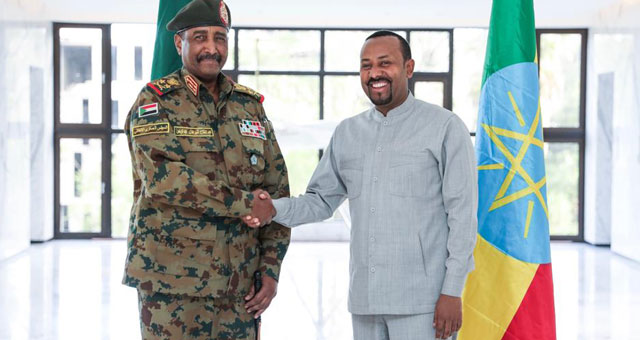
Addis Ababa, Ethiopia | AFP | A cradle of mankind, modern-day Ethiopia is riven by ethnic tensions, with the latest unrest flaring in the region of Amhara in what the government called a regional “coup” bid.
Here are some key facts about Africa’s second most populous nation:
– People and history –
Ethiopia is the oldest independent African state and one of the world’s most ancient, dating back more than 2,000 years.
It also has a claim on being the birthplace of mankind. Its Awash Valley has yielded some of the earliest hominid remains, including the fossil of a partial skeleton, dubbed Lucy, which has been dated around 3.2 million years old.
The country’s population was around 105 million people in 2017, according to the World Bank, and it counts more than 80 ethnicities.
Around 60 percent are Christian and more than 30 percent Muslim.
Ethiopia is a federal state with considerable autonomy granted to nine regions divided along ethnic lines, and most power held by the prime minister.
It hosts the African Union’s headquarters.
– Famines and wars –
Except for a brief period under Italian occupation between 1935 and 1941, Ethiopia was never subjected to European colonisation — a rarity in Africa.
Emperor Haile Selassie dominated between 1916 and 1974, save for a period of exile during the Italian occupation.
After 1974, when he was overthrown in a coup and later executed, Ethiopia underwent a series of military dictatorships, notably under Marxist ruler Mengistu Haile Mariam who waged a series of bloody purges dubbed the “Red Terror”. He was ousted in 1991.
The late 1970s and early 1980s saw a series of devastating famines which caused widespread starvation.
The UN said 1.2 million people died in 1984-85 alone and the tragedy shot to global attention when Band Aid recorded a single to raise money for famine relief.
When Eritrea gained de-facto independence in 1991, Ethiopia was deprived of access to the Red Sea.
War broke out between the neighbours between 1998 to 2000 over a border dispute, which remains a source of tension despite a peace deal signed in 2018.
– Ethnic violence –
The regime was confronted in 2015 by anti-government protests originating in the Oromia region, home to the largest ethnic group, that spread in 2016.
The protests by the Oromo and Amhara people, around 60 percent of the population combined, were sparked by what they saw as the over-representation of the Tigrayan minority within the ruling regime.
These demonstrations were a key factor in the resignation, in February 2018, of the prime minister Hailemariam Desalegn.
In April that year Abiy Ahmed, an Oromo, was sworn into power, and in his first speech as prime minister he called for an end to repressive, exclusionary governance.
He pushed economic reforms, allowed the return of dissident groups, sought to crack down on rights abuses and arrested top military and intelligence officials.
He also sealed a peace deal with Eritrea.
But his first year in office also saw a surge in ethnic violence.
The latest unrest flared on June 22 in Amhara when the country’s army chief and a top local leader were shot dead during what the government described as an attempt to overthrow the regional government.
Ethnic clashes in other regions have displaced over a million people.
– Poor country, dynamic economy –
Ethiopia has the highest growth rate in Africa, with 10.2 percent in 2017, after 12.6 percent in 2010, but it remains one of the poorest countries with a per capita income of 740 dollars in 2017 (World Bank).
Coffee accounts for most export earnings but the state is investing in public works and housing and planning a move towards manufacturing.
China has funded much of the construction in development.
In the past two decades, Ethiopia has quadrupled its primary education rate, halved infant mortality and doubled accessibility to drinking water.
But in 2015-2016 it experienced its worst drought in several decades.
Government and international organisations have intervened to avoid repeats of the killer famines of the 1970s and 1980s.
 The Independent Uganda: You get the Truth we Pay the Price
The Independent Uganda: You get the Truth we Pay the Price



This paragraph is genuinely a pleasant one it helps new web users, who are wishing for blogging.